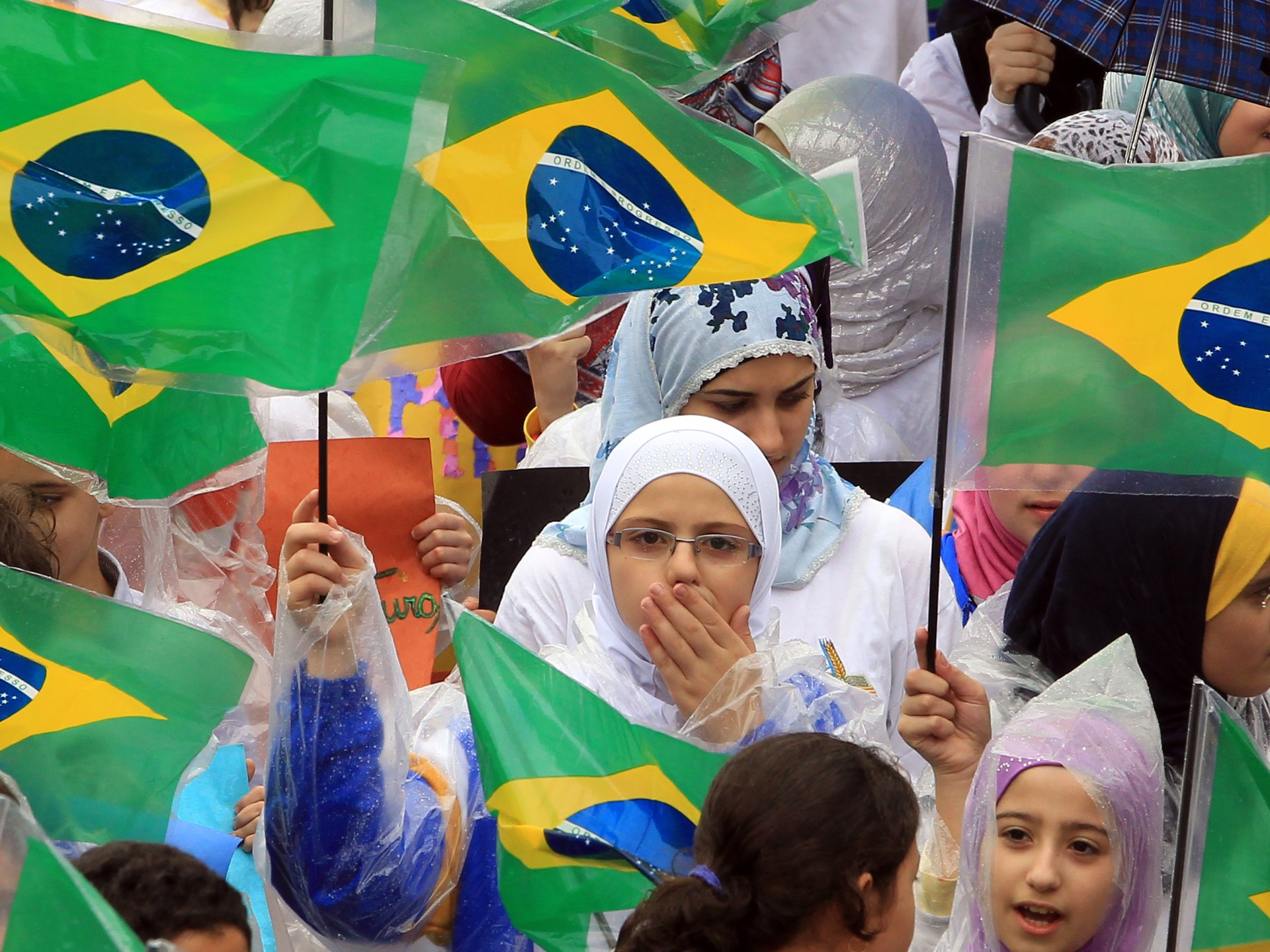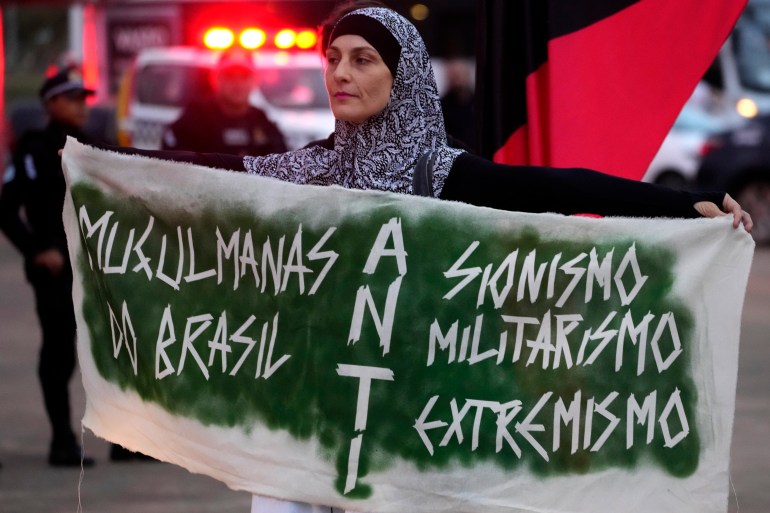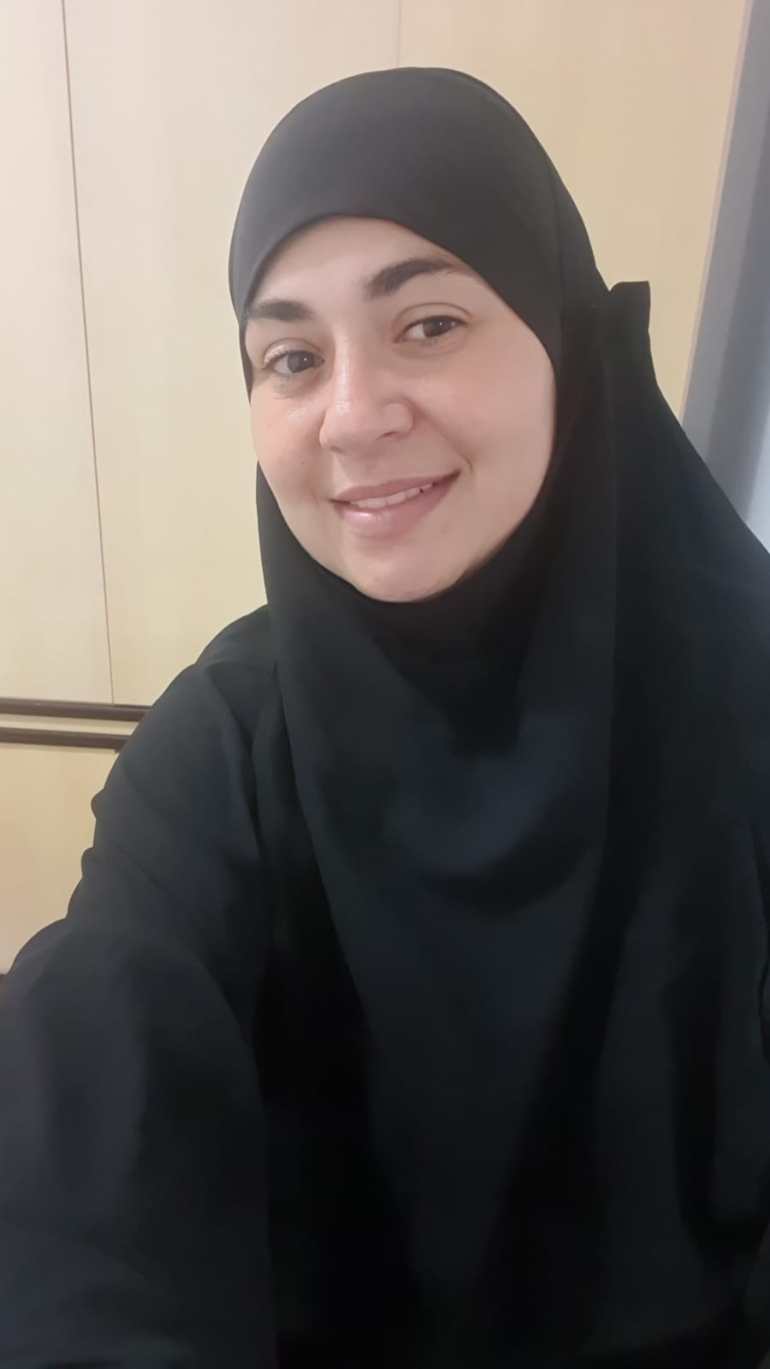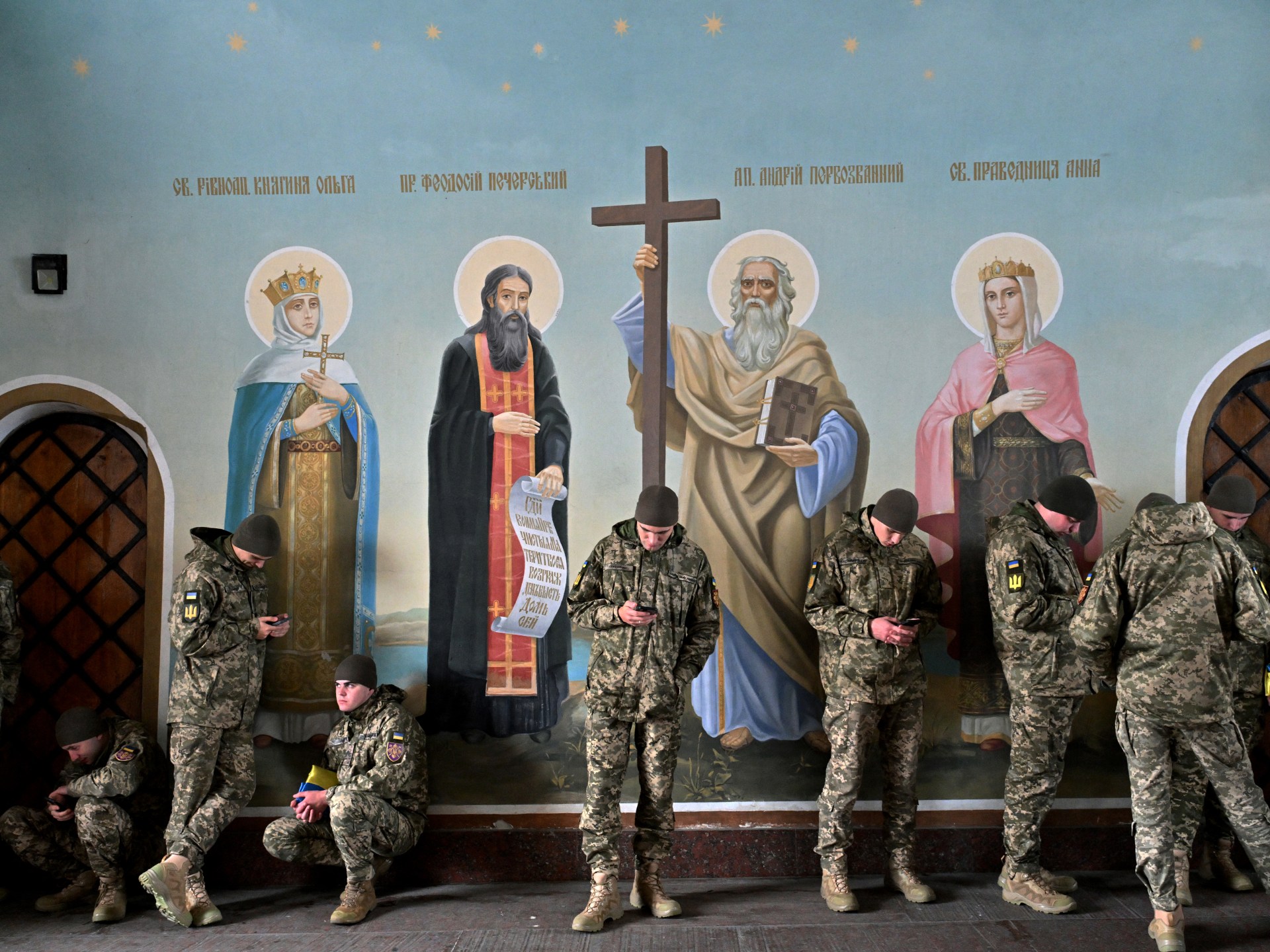
Sao Paulo, Brazil – It was not uncommon for patients to arrive in a bad mood at the emergency room at the hospital in São Paulo, Brazil, where doctor Batull Sleiman worked.
After all, each day brought new medical crises and new requests for urgent care. Sleiman had seen everything. But she didn’t expect that she would get so angry a few weeks ago.
A patient arrived at her exam room frustrated by the time spent waiting to see a doctor. Sleiman reminded that his problem was “not urgent.” But when she treated him, he accused her of being rude.
“You’re being rude to me because you’re not from Brazil,” Sleiman remembers. “If you were in your country…”
Sleiman said she turned away rather than hear the rest. As the daughter of Lebanese immigrants, she believes the man reacted this way for one reason: her hijab.
“I was surprised and outraged,” Sleiman told Al Jazeera. However, she added, the atmosphere in Brazil has since become more tense War in Gaza had broken out. “Since October I’ve noticed that people on the street are staring at me more.”
But Sleiman isn’t the only one who feels excluded. As the war in Gaza continues, Brazil is one of many countries where fears of religious discrimination, particularly against its Muslim community, are growing.
A survey released last month by the Anthropology Group on Islamic and Arab Contexts – an organization based at the University of São Paulo – found that reports of harassment among Muslim Brazilians had been widespread since the start of the war.
An estimated 70 percent of respondents said they knew someone who had experienced religious intolerance since the Palestinian group was founded on October 7 Hamas launched an attack on southern Israel, killing 1,140 people.
Since then, Israel has waged a military offensive against Gaza, a Palestinian enclave, killing more than 1,000 people 21,000 people. This response has raised human rights concerns, with United Nations experts warning of a “great risk of genocide“.
While Palestinians are an ethnic group – and not a religious one – Professor Francirosy Barbosa of the University of São Paulo noted that the October 7 events in Brazil led to incidents of religious intolerance as Palestinian identity was mixed with Muslim identity.
She led the survey of 310 Muslim Brazilians in November. She explained that respondents had received insults that reflected tensions in the Gaza war.
“Many Muslim women told us that they are now being called things like ‘Hamas daughter’ or ‘Hamas terrorist’,” she told Al Jazeera.
The survey, conducted online, also found that many of those surveyed also had their own experiences with religious intolerance.
“About 60 percent of respondents said they had been a victim of a crime either on social media or in everyday life at work, at home or in public spaces,” Barbosa said.
Women in particular, the study found, reported slightly higher rates of religious intolerance.

The question of Islamophobia was catapulted into the national spotlight this month when a video circulated on social media that appeared to show a resident of Mogi das Cruzes, a suburb of São Paulo, rushing toward a Muslim woman and grabbing her headscarf. The video was even broadcast on news channels such as CNN Brasil.
One of the women involved, Karen Gimenez Oubidi, who calls herself Khadija, had married a Moroccan eight years ago and converted to Islam. She told Al Jazeera that one of her neighbors was involved in the altercation: she was upset after her children had an argument.
“She came down with her brother and was very aggressive. She called me a “cloth-covered slut.” I quickly realized that it wasn’t just about the children’s struggle,” said Gimenez Oubidi.
Neighbors tried to separate the two women. However, a man in the video grabbed Gimenez Oubidi from behind and put an arm around her neck to restrain her. Gimenez Oubidi identified him to Al Jazeera as her neighbor’s brother.

“He said to me a few times, ‘What are you doing now, terrorist?’ He didn’t say it out loud: it was only for me to hear it. He knew what he was doing,” Gimenez Oubidi said. She added that the argument between her son and the neighbor’s child was also about her hijab.
The woman who attacked Oubidi, Fernanda – who said she did not want her full name revealed for fear of public backlash – disputed that account.
Fernanda said her son was beaten on the playground by Oubidi’s son, and although she physically attacked Fernanda, she did not refer to her religion. “I never insulted her because of her religion. That just didn’t happen. I would never do something like that,” she said.
A July government report said religious intolerance “is most prevalent among those targeted.” African originbut it also affects indigenous people, Roma, immigrants and converts, including Muslims and Jews, as well as atheists, agnostics and non-religious people.”
Brazil is predominantly Christian and is home to an estimated 123 million Catholics – more than any other country in the world.
But there has long been a Muslim population there, albeit a smaller one. Scholars believe that Islam came to the country through the transatlantic slave trade, as kidnapped African Muslims continued to practice their religion in their new surroundings.
A group of enslaved Muslim Brazilians even launched an uprising against the government in 1835, called the Malê Uprising – a term derived from the Yoruba word for Muslim.
Brazil’s Muslim population grew following waves of immigration in the late 19th and 20th centuries, particularly after the collapse of the Ottoman Empire. Arab immigrants, particularly from Lebanon, Syria and Palestine, came to know Brazil as their home.
The exact number of Muslims in Brazil is not known today. The 2010 census identified 35,167 people as Muslims, but in subsequent years other estimates have been released putting the population as high as 35,167 1.5 million.
But some advocates point out that other demographic and political trends are creating the conditions for increased tensions between Muslim and non-Muslim groups.
Evangelical Christians now represent the fastest growing religious segment in Brazil, accounting for about a third of the population. Their number has made them one significant political force.
Evangelical voters were credited with helping elect the far-right president Jair Bolsonaro in 2016, with polls showing 70 percent support him.
During his failed re-election in 2022, Bolsonaro repeatedly invoked Christian imagery in his appeals to voters, describing the race as a “battle of good against evil.”
Mahmoud Ibrahim, leader of a mosque in Porto Alegre, believes the us-versus-them mentality has translated into hostility toward his community.

At recent anti-war protests in Gaza, he said onlookers called him a “terrorist” and “child rapist.”
“Evangelicals and Bolsonarists constantly insult us. They even persecuted a person who went to our demonstration the other day,” he said.
Ibrahim added that he had heard of at least one woman bleeding after attackers tried to rip off her hijab, causing the needles in the scarf to pierce her skin.
Girrad Sammour leads the National Association of Muslim Jurists (ANAJI), a group that provides legal assistance in Islamophobia cases. He said the number of reports to ANAJI had always been high, but since the war began on October 7, it had exploded.
“There was a 1,000 percent increase in the denunciations we received,” he told Al Jazeera, attributing some inflammatory comments from far-right evangelical pastors.
But Barbosa, the poll’s director, believes there are ways to mitigate the hatred and distrust of Muslim Brazilians. She cited a lack of media representation as an example.
“Few Palestinian leaders and experts in the Middle East with a pro-Palestinian perspective, for example, have been invited by television shows to comment on the conflict in Gaza,” Barbosa said.
But she also encouraged Muslim Brazilians to talk about their experiences to raise awareness.
“What is not denounced does not exist for the government,” she said. “Only when the authorities know what is happening can they take appropriate measures, such as investing in education against religious intolerance.”






Recent Comments